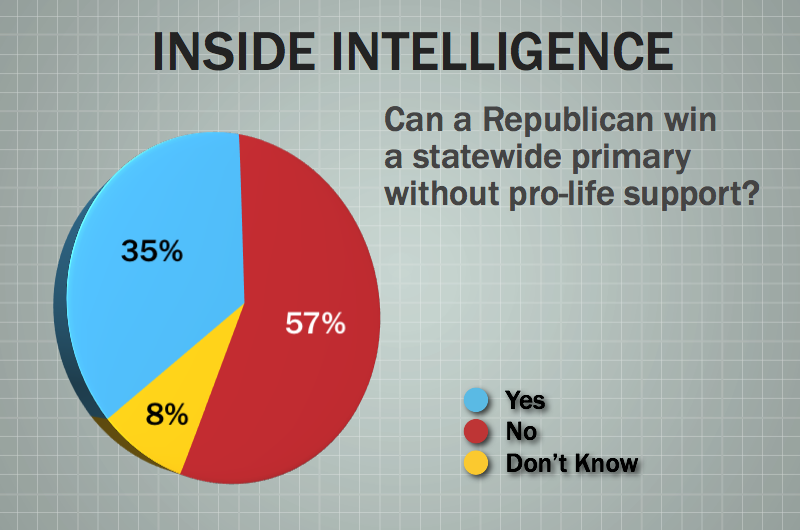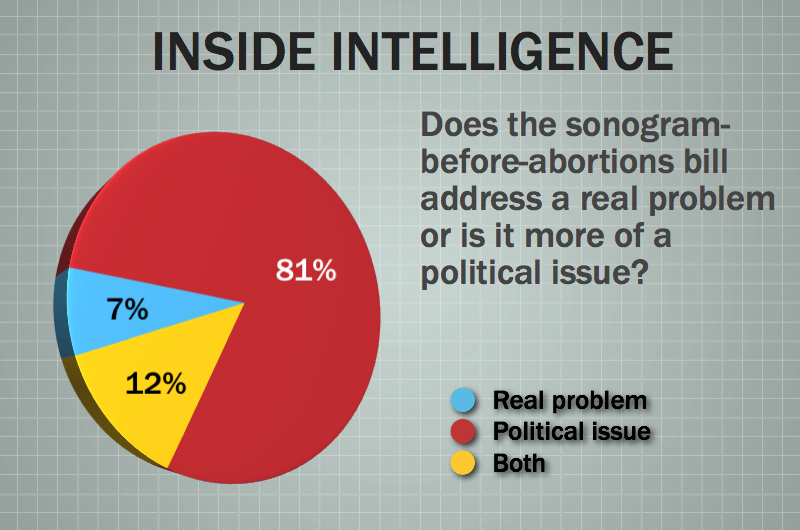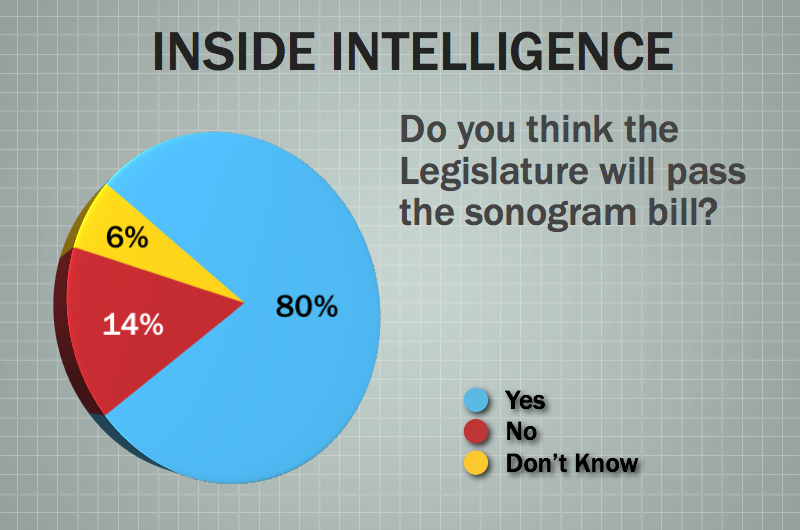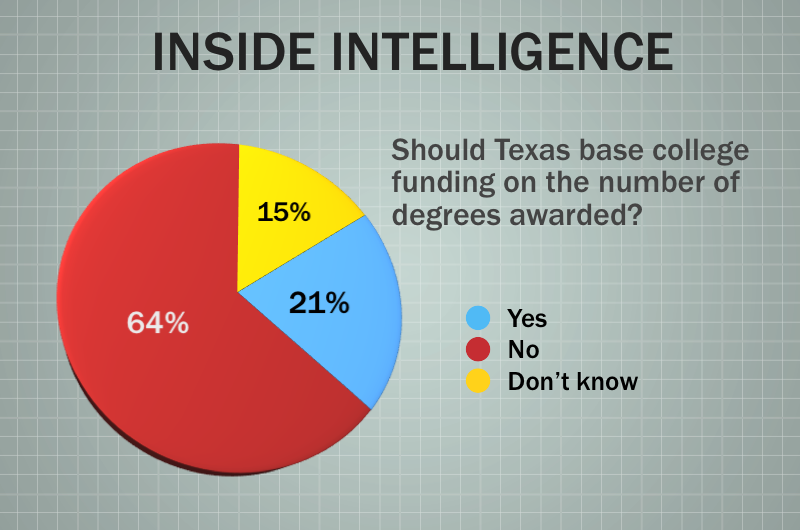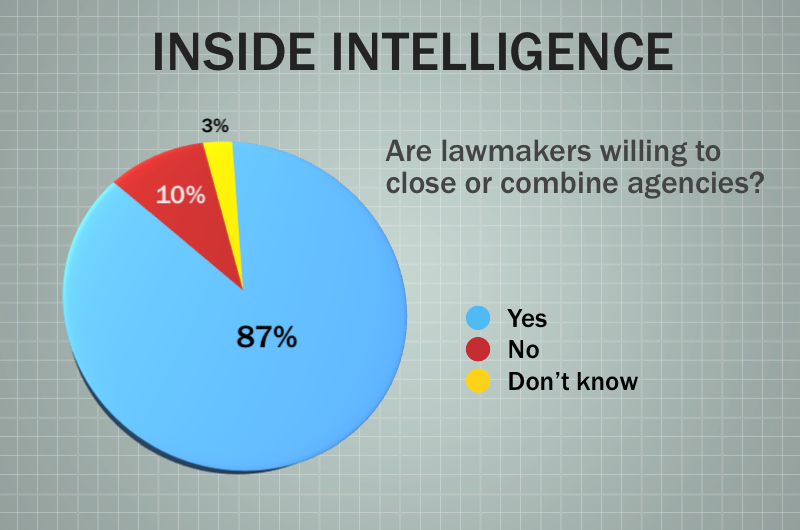Ever have that feeling that, "Don't worry, it's all good," means, "You're already baked"?
Speaker Joe Straus appointed members to committees, shuffling the assignments in a Texas House where one in four members is a freshman and where Republicans have a two-to-one numerical advantage. As usual, some House members were surprised. Some of them were doubly surprised when they read about their assignments on the Quorum Report an hour or more before they were made public by the Speaker's office (a note to leakers: when you're the only outfit in possession of the leaked information, all inquiries lead back to you; just sayin').
With the panels named, he can start assigning legislation to various committees for consideration, and that will get under way quickly, with the House Appropriations Committee diving into the budget this week.
Straus had several openings to fill, with members either retiring or getting beat and leaving chairmanships open on Calendars, Corrections, Culture, Recreation and Tourism, Defense & Veterans' Affairs, Human Services, Licensing & Administrative Procedures, Public Safety, Redistricting, and the House Select Committee on Federal Economic Stabilization Funding.
Calendars sets the House's agenda — what bills come up. Licensing is the committee where most gaming legislation is handled. Redistricting, within the political micro-climate of the Legislature, is where the politicians go to tell their own futures.
Some members did just fine, and some made the best of what they got. The Democrats knew what was coming when they saw the results on Election Night. After the voting, and the jersey changes for Alan Ritter of Nederland and Aaron Peña of Edinburg, the 77-73 House gave way to the 101-49 House. And what had been a 19-16 split on committee chairmanships is now a 27-11 split. It was one of those "Shut up and take your medicine" moments, and for the most part, they did.
The big busts were Rene Oliveira, D-Brownsville, who left the middle seat on Ways & Means and got the middle seat at Land & Resource Management. Joe Pickett of El Paso is still on Transportation, but without the gavel in his hand; he's now chairing Defense & Veterans' Affairs. That's not a bad gig, given the military presence in El Paso, but it's not Transportation. Rep. Yvonne Davis, D-Dallas, didn't vote for the speaker or against him. She didn't even press the button for the white "abstention" light. She just sat there. And for whatever reason, she's no longer the chair of Urban Affairs.
Beverly Woolley, R-Houston, whose endorsement of Straus before the session started broke the opposition's momentum, is speaker pro tempore. Other notable elevations: Todd Hunter, R-Corpus Christi, will head Calendars, and Harvey Hilderbran, R-Kerrville, will head Ways & Means (which might have a limited role in a session where lawmakers are more allergic than usual to taxes).
What's left of the Polo Road Gang did all right, though they didn't all get what they wanted, or thought they might be getting. The Calendars Committee is packed with them; four of the seven who are still left are on that committee. The three who aren't have good jobs: Straus himself, Jim Pitts of Waxahachie, chairman of Appropriations, and Rob Eissler of The Woodlands, chairman of Public Education. (The PRG was a group of 11 Republicans who met at Byron Cook's condo two years ago to pick a challenger to Speaker Tom Craddick from their ranks. Straus was the surprised and surprising pick. Brian McCall quit to be chancellor of the Texas State System, Delwin Jones of Lubbock and Tommy Merritt of Longview lost their primaries, and Edmund Kuempel died.) Charlie Geren of Fort Worth heads Administration and is on five committees. Jim Keffer of Eastland heads Energy Resources and is on four panels. And Burt Solomons of Carrollton is suddenly everyone's best friend, as chairman of Redistricting. He's on three other committees, too. Dan Branch of Dallas, who signed up as soon as Straus' name rose to the top two years, also landed in clover, with a chairmanship (higher ed) and three more assignments.
Redistricting bears a mention here, as it's packed with committee chairs and Straus loyalists. That's the panel that will draw districts that help and hurt incumbents, a powerful lever in the hands of the Speaker and, on the other end of the building, the lieutenant governor.
And the opposition to Speaker Joe Straus isn't on the BFFs list; depending on your view, they were either punished directly or there simply wasn't anything left for them after the stalwarts were rewarded. Rep. Ken Paxton, R-McKinney, who pressed almost to the end — withdrawing just before the vote on the speaker — finds himself on County Affairs and Urban Affairs. Warren Chisum, who challenged Straus and then folded, as promised, when the GOP Caucus stuck with the speaker, landed on Appropriations and Environmental Regulation.
The members of the No-Joes are mostly freshmen, but there are some veterans, too, and some of their committee assignments were choice — and not in a good way. (It's always hard to know if freshmen got hosed because of bad juju or if it was just because they're freshmen.)
Leo Berman of Tyler, Wayne Christian of Center, Dan Flynn of Van, Phil King of Weatherford, Jodie Laubenberg of Parker, Tan Parker of Flower Mound, Paxton, and Bill Zedler of Arlington. Berman got Elections, but without his beloved Voter ID bill, which went to a special committee he's not on. Christian is on Ways & Means, an ordinarily powerful committee that looks to be emasculated by mass oaths against any new taxes. King, a ringleader in the anti-Straus group, got Urban Affairs. He lives in Weatherford, population 27,437.
The committee assignments are available here by member, and here by committee. Here's a list of chairmen, with asterisks indicating new chairmen (a few because they're heading new committees):
• Agriculture & Livestock*: Rick Hardcastle, R-Vernon
• Appropriations: Jim Pitts, R-Waxahachie
• Border & Intergovernmental Affairs: Veronica Gonzales, D-McAllen
• Business & Industry: Joe Deshotel, D-Beaumont
• Calendars*: Todd Hunter, R-Corpus Christi
• Corrections*: Jerry Madden, R-Richardson
• County Affairs: Garnet Coleman, D-Houston
• Criminal Jurisprudence: Pete Gallego, D-Alpine
• Culture, Recreation & Tourism*: Ryan Guillen, D-Rio Grande City
• Defense & Veterans' Affairs*: Joe Pickett, D-El Paso
• Economic & Small Business Development*: John Davis, R-Houston
• Elections*: Larry Taylor, R-Friendswood
• Energy Resources: Jim Keffer, R-Eastland
• Environmental Regulation*: Wayne Smith, R-Baytown
• General Investigating & Ethics: Chuck Hopson, R-Jacksonville
• Government Efficiency & Reform*: Bill Callegari, R-Katy
• Higher Education: Dan Branch, R-Dallas
• Homeland Security & Public Safety*: Sid Miller, R-Stephenville
• House Administration: Charlie Geren, R-Fort Worth
• Human Services*: Richard Peña Raymond, D-Laredo
• Insurance: John Smithee, R-Amarillo
• Judiciary & Civil Jurisprudence*: Jim Jackson, R-Carrollton
• Land & Resource Management*: Rene Oliveira, D-Brownsville
• Licensing & Administrative Procedures*: Mike Hamilton, R-Mauriceville
• Local & Consent Calendars: Senfronia Thompson, D-Houston
• Natural Resources: Allan Ritter, R-Nederland
• Pensions, Investments & Financial Services: Vicki Truitt, R-Keller
• Public Education: Rob Eissler, R-The Woodlands
• Public Health: Lois Kolkhorst, R-Brenham
• Redistricting*: Burt Solomons, R-Carrollton
• Rules & Resolutions: Ruth Jones McClendon, D-San Antonio
• State Affairs*: Byron Cook, R-Corsicana
• Technology*: Aaron Peña, R-Edinburg
• Transportation*: Larry Phillips, R-Sherman
• Urban Affairs*: Harold Dutton Jr., D-Houston
• Ways & Means*: Harvey Hilderbran, R-Kerrville
• Select Committee on State Sovereignty*: Brandon Creighton, R-Conroe
• Select Committee on Voter Identification and Voter Fraud*: Dennis Bonnen, R-Angleton
• Joint Committee on Oversight and HHS Eligibility System*: Fred Brown, R-College Station


